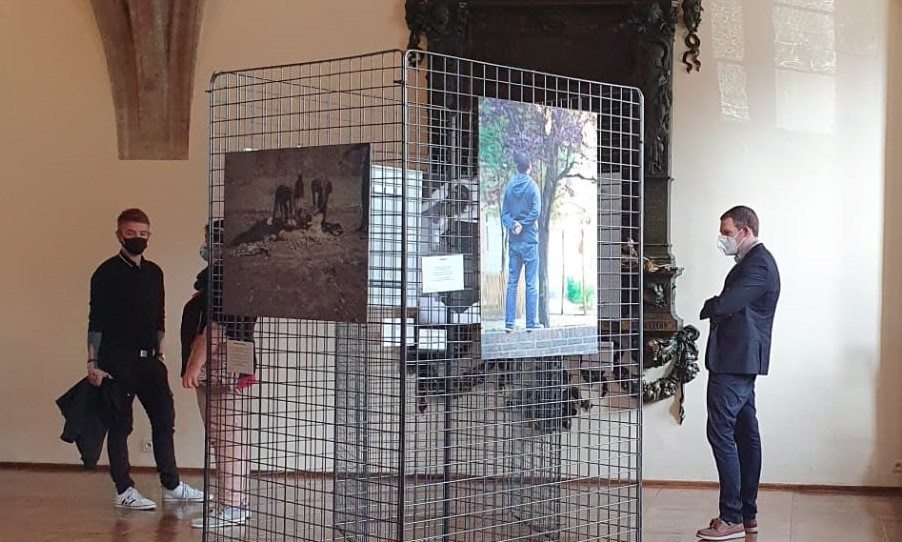A photo exhibition titled “Photo-Voice: Trafficking in human beings through the eyes of the victims” opens to visitors this weekend in Brussels.
The collection of photos is intended to provide a glimpse into the life and experiences of victims of human trafficking in Belgium, and is an initiative from the Belgian nonprofit organisation PAG-ASA.
PAG-ASA provides support to victims of human trafficking, offering a springboard towards autonomy and reintegration.
Its shelter in Brussels provides care for as many as 200 victims a year, and some of those victims chose to help create the photo exhibition in order to raise awareness.
“We asked them to think about a moment or a feeling that they wanted to convey as a message to the broader public about what human trafficking really is and does to the victims,” Sarah De Hovre, Director of PAG-ASA, told The Brussels Times.
PAG-ASA is named for the Tagalog language word for “hope.”
“When we were created in 1994, the problem of human trafficking concerned mainly women from Southeast Asia and the Philippines, who were trafficked for sexual exploitation to Belgium and The Netherlands, which is why we chose the word - because we wanted to bring hope to those women,” De Hovre explained.
The pictures in the ‘Photo Voice’ project are the voices of 24 victims who found support, peace and security at the Belgian non-profit.
The photographers who took the photos for the exhibition remain anonymous, in order to keep the emphasis on the experiences of the victims.
“It's really the victims themselves who told us and showed us what they wanted in the picture, and the photographer was only there to be behind the camera,” said De Hovre.
“Everything in front of the camera was done by the victims themselves.”
In one photo, a woman is lying in a bed surrounded by crosses and garlic.
“She told us that during the time that she was exploited, she was so afraid during the night that she was putting garlic and crosses around her bed to be protected, to feel safe and to be able to fall asleep,” De Hovre explained.
“She wanted to share this message that for all those years, she was really living in fear.”
The project is part of the World Day against Human Trafficking (30 June) and the Blue Heart campaign of the United Nations.
Manneken Pis and several buildings in Belgian cities will be coloured blue in honour of the occasion.
“Human trafficking is often an international phenomenon because many victims are transported from one country to another,” PAG-ASA points out.
“But it is important to remember that people can be victims in their own country, even Belgians in Belgium.”
Estimates from the Global Slavery Index indicate that 23,000 people fall victim to modern slavery in Belgium every year.
The photo exhibition is intended to draw attention to how local the problem can be.
“We want people to open their eyes, to realize and be aware that human trafficking and modern slavery is actually happening also in Brussels - to look around and realize that someone around you may be a victim,” said De Hovre.
If you suspect that someone may be a victim of human trafficking, you can anonymously contact the organisation for help and support. If the situation is one of immediate danger, you should contact the police at 112.
PAG-ASA provides both emergency and long-term support for victims of human trafficking.
“It’s not enough to only be there in the emergency phase,” De Hovre said.
“People really need our support in different matters after the exploitation, to be able to rebuild their lives. We provide administrative, legal and social support, and because many victims have lived through trauma and also need psychological support, we make sure they can get that as well.”
Their support generally lasts for three to five years, “because that's how long it typically takes to bring a case to court against the human traffickers, and that's also how long it takes for a victim to begin to build their future again, and find a new path,” said De Hovre.
The photo exhibition will take place in the Ogivale Room of Brussels City Hall from 10:00 AM to 6:00 PM.
It’s open to the public and free of charge.

